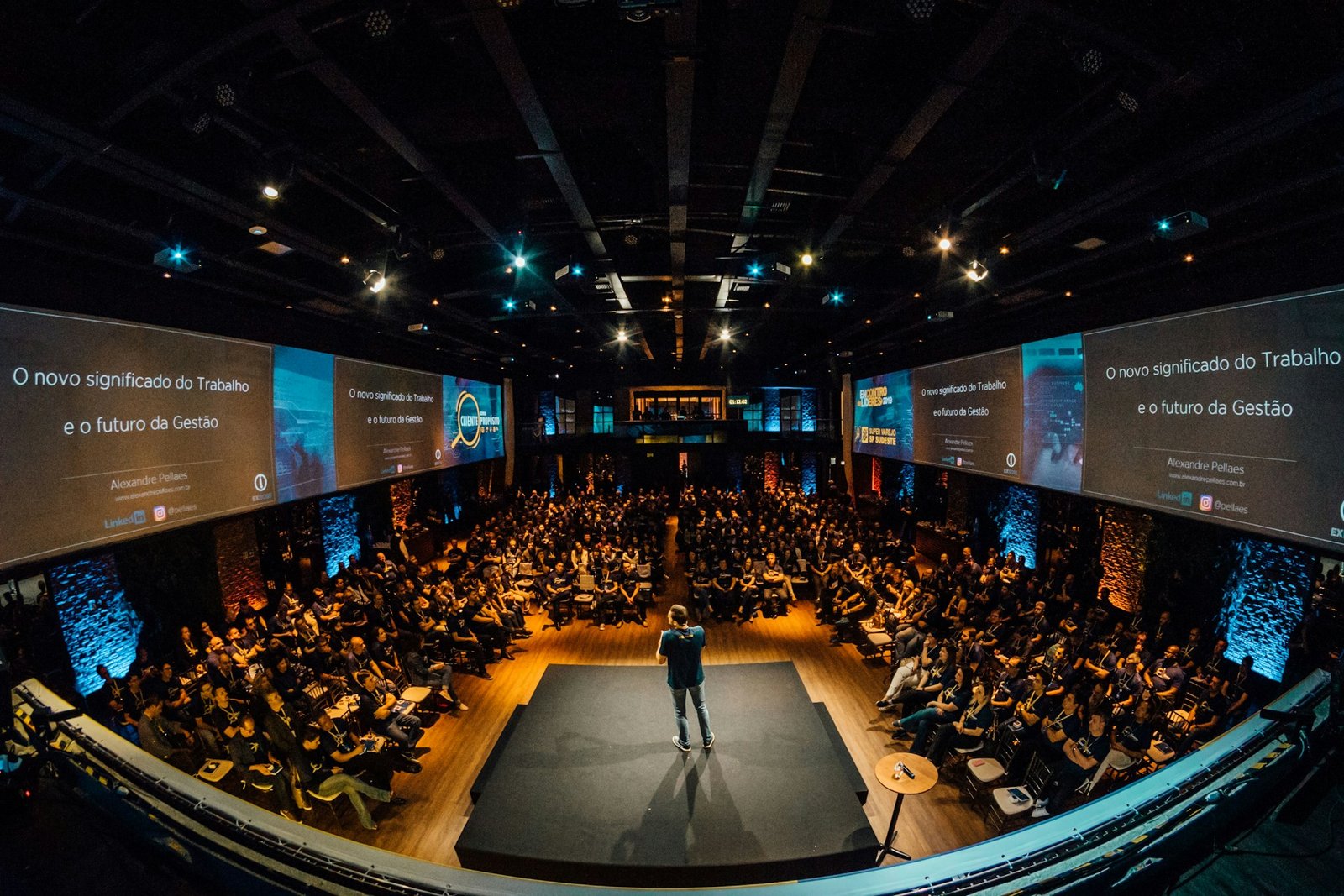
Photo by Alexandre Pellaes on Unsplash
Let’s Talk Sustainable Events: It’s Easier Than You Think!
We all love a good event, right? Whether it’s a music festival, a conference, or even a local fair, they bring us together and create awesome memories. But let’s be honest, events can also have a pretty big impact on our planet. From waste and energy consumption to transportation and resource use, there are a lot of things to think about when planning an event.
But here’s the good news: it’s totally possible to host events that are both fun and sustainable! It doesn’t have to be a huge undertaking either. Small changes can make a big difference, and it’s all about being a little more conscious of the choices we make.
What’s the Big Deal About Sustainable Events?
Well, the truth is, events can have some pretty significant environmental impacts. Think about it:
- Climate Change: Events contribute to greenhouse gas emissions through energy consumption and transportation. All those lights, sound systems, and travel miles add up!
- Waste: Events can produce a lot of waste, from packaging and single-use plastics to leftover food.
- Resource Use: Events require resources like water, energy, and materials, and it’s important to use them responsibly.
The good news is that there are solutions to these problems and you can reduce your environmental footprint if you approach event planning with a mindset of sustainability.
How Can We Make Events More Sustainable?
There are some really cool and creative ways to make events more eco-friendly. Here are a few ideas:
- Think Circular: The idea of a circular economy is key. Instead of a linear “take-make-dispose” approach, we need to think about minimizing waste, reusing materials, and extending the lifespan of products. For example, this could mean using compostable tableware or working with local suppliers.
- Location, Location, Location: Choosing a venue is also important. Is it easy to get to by public transport? Does it have sustainable policies in place?
- Energy Efficiency: Events can switch to renewable energy or venues can maximize natural light and ventilation.
- Waste Reduction: Focus on reducing waste through recycling, composting, and avoiding single-use items. Digital marketing and feedback forms can also significantly reduce waste.
- Catering with Care: Choosing local, sustainably sourced food can also help . Try to avoid unnecessary packaging.
- Transportation: Encourage attendees to use public transport, or organize shuttle services using low-emission vehicles.
Examples in Action
There are so many great examples of events that are doing sustainability right! For example, the Brighton & Hove City Council has implemented a pledge-based system that focuses on energy, waste, water, health impacts, community involvement, and local economic benefits.
There are several festivals in the UK and Europe that have made sustainability a core part of their values. The Green Gathering festival in Monmouthshire uses 100% renewable power, offers veggie food and upcycling workshops. The DGTL festival in Amsterdam focuses on green transportation and reusables. The Isle of Wight festival uses a local biogas firm to generate electricity. The Hebridean Celtic festival minimizes equipment haulage and has eliminated single use plastic. The Øya festival in Oslo encourages attendees to walk, bike or use public transportation. Shambala in Northamptonshire promotes car-free transport and doesn’t allow meat, fish, or dairy. Terraforma in Italy uses wooden stages and solar-powered lighting. The Love Trails festival in Wales uses chemical-free compost loos and sources most of its food locally. The Pohoda festival in Slovakia has water-saving vacuum toilets and a mobile solar power station.
Even large sporting events are getting in on the act. The Ryder Cup Green Drive has been promoting sustainability in golf for almost 25 years. They focus on things like reducing carbon emissions, protecting biodiversity, using resources efficiently, and sourcing food ethically.
It’s a Team Effort!
Organizing a sustainable event is not a solo job. It requires cooperation between event organizers, venue managers, suppliers, and attendees. By working together, we can make a real difference. We all have the power to make events more sustainable and more enjoyable for everyone involved. Let’s embrace the opportunity and create events that are good for us and good for the planet!
What are some ways you have seen sustainable practices incorporated at events?
